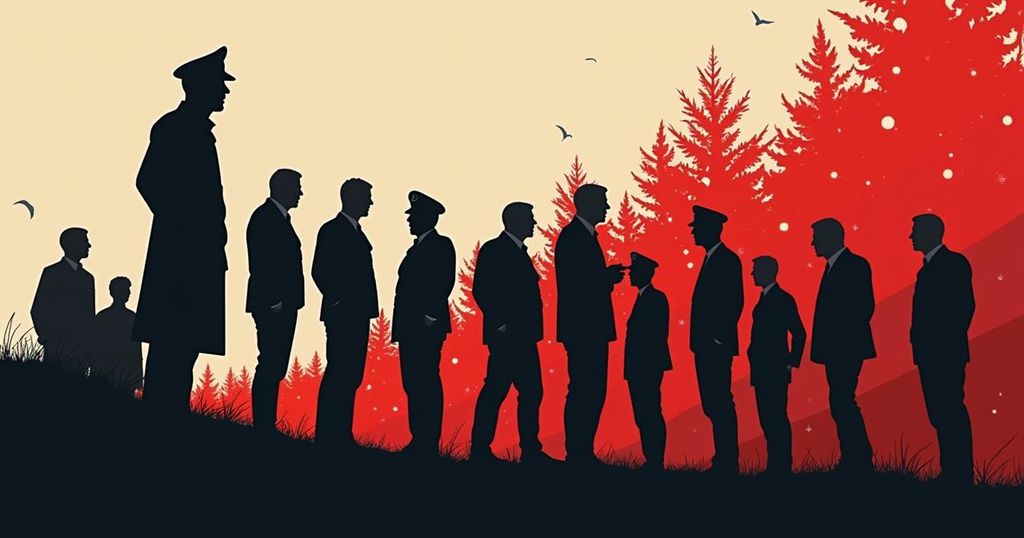Austria’s Freedom Party Set for Historic Election Victory Nearly 80 Years After Nazi Rule

Austria’s Freedom Party (FPÖ) is poised to win the national election, an unprecedented occurrence for a far-right party since the Nazi regime. With the FPÖ projected to receive about 29.1% of the vote, they will need to form a coalition government, navigating complex political dynamics, including their stances on immigration, EU relations, and foreign policy regarding Russia and Ukraine.
In a significant political shift, Austria’s Freedom Party (FPÖ) is projected to win the national election on Sunday, marking an unprecedented moment in Austrian political history. This victory would be the first time a far-right party has achieved such prominence since the Nazi regime came to power nearly 80 years ago. Michael Schnedlitz, the general secretary of the FPÖ, stated, “The voter has spoken. Change is wanted in our country,” as early projections indicated that the FPÖ garnered approximately 29.1 percent of the vote, just ahead of the conservative Austrian People’s Party (ÖVP), which secured around 26.2 percent. While the FPÖ has topped the ballot, the path forward remains complex, as coalition negotiations will be necessary for them to govern effectively. Herbert Kickl, the FPÖ leader, has referred to himself as the “Volkskanzler,” or “chancellor of the people,” echoing terminology historically associated with Adolf Hitler. The party, which has roots linked to former Nazi officials, has significantly shifted the political discourse in Austria, particularly concerning immigration, the European Union, and the ongoing war in Ukraine. Analysts such as Antonia Colibasanu from Geopolitical Futures caution that even if the FPÖ emerges as the principal party, forming a stable government will be challenging, given the ÖVP’s nuanced position on potential coalitions. The FPÖ’s influence has compelled the ÖVP to adopt more stringent immigration policies, diverging from its previously pro-EU stance while still supporting EU principles regarding Russia. The FPÖ’s skepticism towards the EU is evident in its calls for stricter asylum regulations and a rejection of the Schengen expansion to Romania and Bulgaria. Furthermore, the FPÖ has advocated for diminished sanctions on Russia, challenging Austria’s traditional position on neutrality and aligning with pro-Russian ideologies. Despite the FPÖ’s surge in popularity, the party’s future in government is uncertain, and Austria’s political landscape remains contentious, especially as the country grapples with historical implications of its past, particularly the legacy of the Nazi era.
This article discusses the projected electoral success of Austria’s Freedom Party (FPÖ), a far-right political group, in the context of historical events surrounding the Nazi regime that ruled Austria during the 1930s and 1940s. The article highlights how the FPÖ’s ascendance to a leading position in the election is unprecedented, marking a significant shift in Austria’s political landscape. It underscores the implications that FPÖ’s rise has for current policies related to immigration, the EU, and international relations, especially concerning Russia and Ukraine. The analysis also points out the complexities of coalition politics and the potential challenges the FPÖ may face in translating its electoral success into governing power.
In summary, the anticipated victory of the FPÖ in the Austrian elections marks a pivotal moment in the country’s political history, reminiscent of dark times associated with Nazi control. The party’s rise may lead to significant shifts in immigration policy and foreign relations, particularly in how Austria engages with the EU and Russia. However, the path to governance remains fraught with challenges, particularly in forming necessary coalitions. The implications of this electoral outcome will likely reverberate through Austrian and European politics as the nation grapples with the complicated legacy of its past and the pressing issues of contemporary governance.
Original Source: www.newsweek.com








